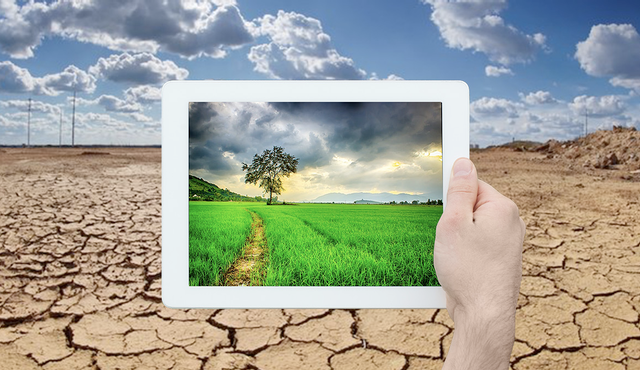It is well established that technological advancements have been shaping the education landscape for quite some time and that the pandemic only accelerated those changes. Educators suddenly had to shift to online teaching while students had to get used to remote learning. Everyone in the education space, it seemed, needed to get a handle on the endless EdTech options available (what apps and devices should we use?) and the kinds of pedagogy (synchronous vs. asynchronous) that would make online schooling effective. In other words, there were countless things to consider. However, as we settle into this reality, there is an aspect of EdTech that may not be top of mind for many, and that’s the environmental impact of digital education. Leading thinkers in sustainability and digital technology urgently remind us why this issue requires our immediate attention.
According to Neil Selwyn (2018), education has become heavily dependent on digital technology, and our usage “contributes to the degradation of our planet.” He points out that the extraction of metals and minerals to create digital devices is not sustainable and that the global manufacturing process of these devices involves hazardous waste build-up and disposal. In addition, Selwyn writes that the recycling and disposal of e-waste are expensive and contribute to high pollution levels in many developing countries. Furthermore, because processing and storing digital data require vast amounts of energy, digital technology is projected to consume 20% of the world’s total energy by 2025 (Guardian, 2017). Out of that data flow, online video comprises 80%, while the rest is from other digital uses such as websites, emails, instant messaging, photo storage, and video games, according to the think tank, The Shift Project (2019b).
As society becomes more reliant on digital technology, sustainability experts urge us to reflect on the impact of our digital actions. Dr. Amy Collier, an assistant provost for digital learning, writes that “our individual choices can make small differences, especially when collectively applied” (2022). One such action can be as simple as turning off our cameras during virtual classes (Purdue, 2021; Collier, 2022). Other steps towards sustainability require collaborative, interdisciplinary work that involves community outreach and “partnering with others in the design, development, and evaluation of climate-related education efforts” (Veletsianos, 2022). Additionally, experts urge us to not only amplify awareness about the effects of digital technology on the environment but also incorporate it in the decision-making process when procuring digital technology (The Shift Project, 2019a). Finally, as educators and users of EdTech, we should include sustainability as one of our key considerations when designing our pedagogical approach and take Selwyn’s (2018) advice to critically re-examine our usage and assess the necessity of some digital technologies in education.
References:
Collier, Amy. (2022). DD 5.1: What powers the web? Digital Detox v5. https://dlinq.middcreate.net/detox-2022/post.html?id=23915
The Guardian. (2017, December 11). ‘Tsunami of data’ could consume one fifth of global electricity by 2025. The Guardian.
Wiles, K. (2021, January 14). Turn off that camera during virtual meetings, environmental study says. Purdue University. https://www.purdue.edu/newsroom/releases/2021/Q1/turn-off-that-camera-during-virtual-meetings,-environmental-study-says.html
Selwyn, N. (2018, October 25). Edtech is killing us all: Facing up to the environmental consequences of digital education. Monash University.
https://lens.monash.edu/@education/2018/10/25/1363185/edtech-is-killing-us-all
The Shift Project. (2019a). Lean ICT -- Towards digital sobriety. https://theshiftproject.org/wp-content/uploads/2019/03/Lean-ICT-Report_The-Shift-Project_2019.pdf
The Shift Project. (2019b). Climate Crisis: The unsustainable use of online video. https://theshiftproject.org/wp-content/uploads/2019/07/Excutive-Summary_EN_The-unsustainable-use-of-online-video.pdf
Veletsianos, G. (2022, July 15). Digital education in times of climate crisis: beyond content. Veletsianos.com.https://www.veletsianos.com/2022/07/15/digital-education-in-times-of-climate-crisis-beyond-content/
